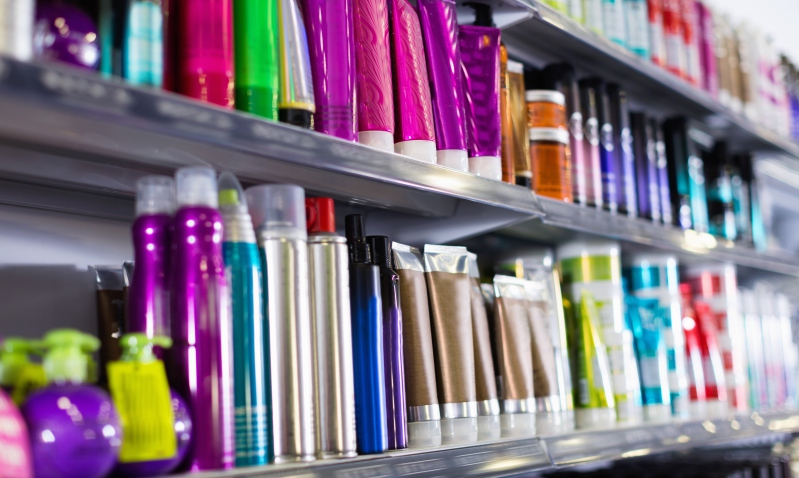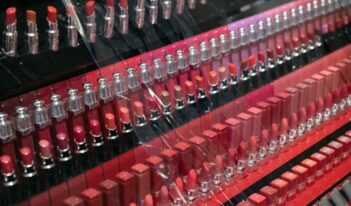
FDA warns consumers to protect themselves from a known carcinogen in hair smoothing products.
In the wake of the COVID-19 pandemic, people working in service industries are adjusting to changing safety regulations including the CDC’s updated guidelines that enable fully vaccinated people to resume work without practicing social distancing or wearing masks. For salon workers, however, navigating potentially hazardous working conditions will require addressing respiratory health risks stemming both from COVID-19 and long-term exposure to toxic cosmetic chemicals.
The U.S. Food and Drug Administration (FDA) published a warning earlier this spring aimed at hair smoothing and straightening products that have been on the market for over a decade. The update, released in the form of an educational guide, explains that certain products and salon services used to smooth out hair texture often contain formaldehyde, a chemical that has been linked with nose and throat cancers, leukemia, respiratory problems, and other harmful health effects.
Over a decade ago, members of Congress urged the FDA to regulate the use of formaldehyde in hair straightening treatments. Despite environmental groups’ and public health advocates’ efforts, the chemical remains in salons today and poses serious health risks to clients and owners alike.
States such as California are pushing for safer personal care products and increased transparency about the ingredients and formulas used in cosmetics. As a result, manufacturers face mounting pressure to market their products as “clean” or “natural.” But, as dermatologists from the University of Pennsylvania argue in a recent editorial, “an arbitrary designation of clean or natural does not necessarily make products safer for consumers.” FDA urges consumers to scrutinize the labels of at-home hair products, including those that claim they are free of formaldehyde.
Researchers have shown that the two ingredients listed in the FDA warning—formalin and methylene glycol—readily convert to formaldehyde gas when exposed to a heat source, such as a blow dryer or hair-straightening iron.
In spaces lacking proper ventilation, such as crowded salons, the agency warns that inhalation of the gas can lead to various side effects such as nausea, chest pain, headaches, and skin irritation. More serious risk is associated with long-term exposure. Some outside research indicates that salon technicians face significant chemical exposure as a result of workplace conditions that often include inadequate air flow. Both the U.S. Department of Health and Human Services and the International Agency for Research on Cancer have linked exposure to formaldehyde with certain cancers.
Despite receiving pages of consumer complaints outlining injuries related to formaldehyde in hair smoothing treatments, FDA has limited its regulatory actions to the warning released in March. Even though FDA scientists have urged the agency to ban formaldehyde in hair-smoothing products for years, the agency has yet to take action.
FDA claims it does not have the power under federal law to regulate the beauty industry. On its own website, the agency states that cosmetic products are FDA-regulated rather than FDA-approved. Under the Federal Food, Drug, and Cosmetic Act, the agency lacks authority to review cosmetic products before they are made available to the market and its oversight of recalls is limited to monitoring their effectiveness and issuing statements.
The Occupational Safety and Health Administration has already issued citations to some salon owners for failing to protect salon technicians, and it has set a standard limiting the allowable levels of formaldehyde in the air.
The American College of Obstetricians and Gynecologists (ACOG) has noted both racial and ethnic disparities in the health risks posed by chemical exposure to hair products because workers in the beauty industry are predominantly immigrants and women of color.
Moreover, although the risks for salon technicians are particularly severe, clients are also harmed by routine exposure to chemicals that are released during hair straightening treatments. According to the same ACOG study, women of color are disproportionately exposed to hair straightening products as a result of societal pressure to have smooth, frizz-free hair.
Ami Zota, professor of environmental and occupational health at George Washington University, has explained that “pressure to meet Western standards of beauty means black, Latina and Asian American women are using more beauty products and thus are exposed to higher levels of chemicals known to be harmful to health.”
FDA’s recent warning may help protect consumers to some degree, but further guidance is needed. Hopefully, the warning will help expose a regulatory gap in an industry that continues to be left to monitor itself.



